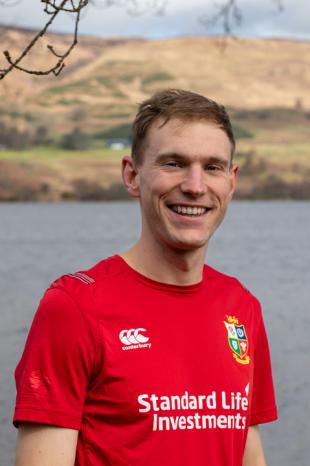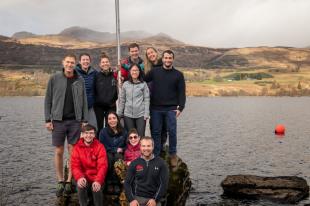Returning to Engineering
Immediately prior to joining IDCORE Tom had spent four years teaching science and maths in the South Wales Valleys. He had gone there after graduating from an aerospace engineering degree at the University of Bristol in 2016. Although he enjoyed life as a teacher, he didn’t feel that it was making the best use of his engineering skills. He could see the potential for making a difference in the energy sector in an industry like offshore renewables.
IDCORE seemed to provide an excellent route into the sector. It would refresh his skills, having been out of engineering for four years, and update them with knowledge that hadn’t been covered as part of aerospace engineering. He thought this would teach him more than he would learn on a graduate scheme.
This has proved to be the case, the baseline knowledge that IDCORE has taught him has given him a head start with his project for a tidal energy device developer, HydroWing. He has found the teaching on tidal energy resources particularly useful, along with the understanding he now has of wider system integration in renewable energy devices. He now has an understanding of important issues like electrical system interfaces that he wouldn’t have picked just from working on his project.
Added to all this, the first year of IDCORE was based in Edinburgh, a city he wanted to spend some time in.
Skills Application
Tom really is getting the opportunity to apply his aerospace engineering skills in the project he is undertaking - developing a passive pitch mechanism to reduce load in high flows on HydroWing’s tidal turbine. It is the sort of well-defined project that Tom was looking for, working on something that the company cares about.
HydroWing want to develop a passive system, as they expect it to be cheaper, more robust and responsive, with greater reliability than an active system. Tom is currently designing the mechanics of the passive system and modelling the loads and response of the mechanism. He will subsequently be going on to build and test a scale model of the design in IDCORE connected facilities – an added benefit of IDCORE for the company, since the costs of some of this testing will be covered by the programme.
When they proposed the project, HydroWing hadn’t expected that it would get this far. They are delighted with the progress made by Tom, as well as the expected performance results from the innovation.








